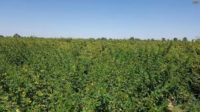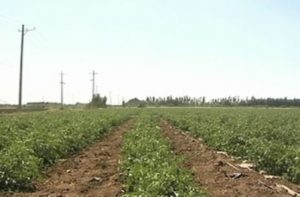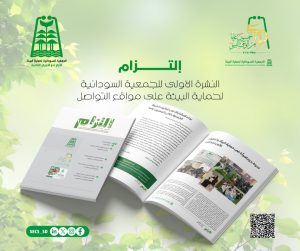Climate change: 10,000 seedlings to restore community forests in North Darfur

Over the last few months, a tree nursery was set up in Mellit, North West of El Fasher in North Darfur, which allowed to plant over 10,000 seedlings of indigenous tree species, to restore community forests.
“The seedlings’ production at Mellit nursery improved communities’ interest and knowledge on raising of indigenous trees growing techniques. In fact, community members took part in the tree nursing activities and received cash as compensation for their work”, explains John Bosco Wale, COOPI Project Leader on Climate Resilience Project in El Fasher.
Simultaneously, 5,000 units of negarim were implemented to be ready for transplanting. Negarim is a water harvesting technique, which collects runoff water within the basin and store water in infiltration pits, thus increasing the moisture levels during the dry season. Accordingly, 5,000 seedlings were transplanted in August as part of the reforestation process.
COOPI and its project partners – the Sudanese Environmental Conservation Society (SECS) and Sudanese National Forestry Corporation (FNC) – have been helping communities in Mellit and other areas of North Darfur to solve part of the environmental related challenges in this area, by supporting restoration of community forests, as part of the project entitled “Strengthening Local Communities resilience to climate change in North Darfur”, funded by theEuropean Union.
Mellit is located about 91 kilometres North West of El Fasher town of North Darfur, state of Sudan. It is estimated 80% of its total population (about 50,162 people), are dedicated to agropastoral activities and they therefore rely directly on natural resources, including forests, rangelands, soil and water.
However, climate change and the human impact, related to the increasing demand for wood for construction, resulted into the degradation of natural resources. In addition, in urban and peri-urban areas of Mellit, years of conflict have disrupted basic communities’ livelihoods and increased the number of internally displaced people.
Given the disappearance of tree cover, reforestation of community forests would mitigate the consequences of deforestation. In doing so, we will also be able to improve food security, environmental health and climate resilience of communities in North Darfur.




